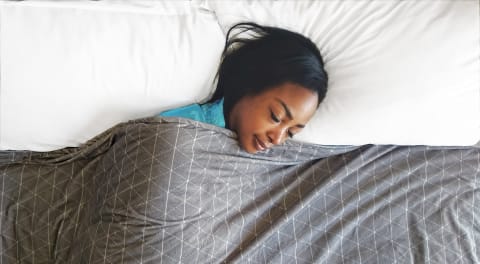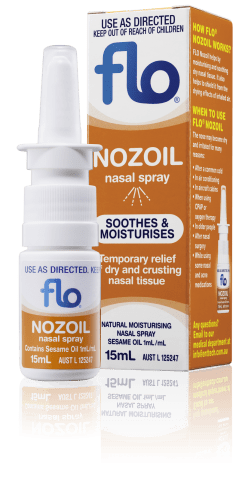Does Medicare Cover CPAP equipment
Does Medicare Cover CPAP Equipment? A Practical Guide for Australian Sleep Apnoea Patients
Starting CPAP therapy can feel overwhelming, especially when trying to understand what financial assistance is available. One of the most common questions we hear at Sove CPAP Clinic is: Does Medicare cover CPAP equipment? The answer isn’t entirely straightforward, because in Australia, Medicare-funded CPAP support varies depending on your location, your health condition, and your financial situation.
In this guide, we’ll unpack how Medicare and state-based support systems work in relation to CPAP equipment, what alternatives are available, and how Sove can help you navigate your options to access affordable, effective sleep apnea therapy. We also provide practical tips to help you make confident, informed decisions about your treatment journey.
Medicare Coverage for CPAP Equipment Depends on Where You Live in Australia
Australia’s Medicare system does not provide a national subsidy for purchasing CPAP machines or CPAP accessories. Instead, CPAP support is delivered through public hospital networks and state-based programs, which vary considerably depending on where you live.
Each state and territory in Australia manages access to CPAP equipment through its local health districts and hospital systems. These services are typically provided via sleep or respiratory clinics within public hospitals. Some offer equipment loan schemes, others provide limited subsidies, and some focus support exclusively on low-income or high-risk patients.
Examples by State/Territory:
- New South Wales (NSW): Local Health Districts in areas such as Sydney, Western Sydney, and the Illawarra offer CPAP loan programs to eligible patients. These are generally available to pensioners or those with a Health Care Card.
- Victoria: Hospitals such as Austin, Royal Melbourne, and Alfred Health may supply CPAP equipment to patients referred through their public sleep clinics. However, demand can be high, and waitlists are common.
- Queensland: The Queensland Health Sleep Disorders Program supports rural patients and those experiencing financial hardship. Access typically requires a referral from a respiratory specialist.
- South Australia and Western Australia: Some hospitals offer basic equipment to eligible patients. In WA, some regional services support patients through the WA Country Health Service.
- Tasmania, ACT, NT: Public support is more limited, often focusing on diagnostic sleep studies with minimal equipment provision.
Because no unified Medicare-funded national program exists for CPAP, it’s crucial to check with your local public hospital or sleep service to determine what you may be eligible for. Sove CPAP Clinic also assists patients in navigating these differences and can recommend personalised care pathways to help bridge public and private support.
Access to Government-Funded CPAP Support Is Based on Both Clinical Needs and Financial Circumstances
Publicly funded CPAP equipment is not automatically provided with an OSA diagnosis. Programs aim to prioritise support for those who cannot access treatment privately due to financial hardship and who are clinically assessed as needing therapy.
Typical eligibility criteria include:
- Formal diagnosis of moderate to severe OSA (AHI >15) via a Medicare-eligible sleep study
- Referral from a sleep specialist practising in the public hospital system
- Concession status (e.g., Pensioner Concession Card, Health Care Card)
- Ongoing follow-up within the public system
Some clinics may also prioritise CPAP access for patients with coexisting conditions such as cardiovascular disease, stroke history, or type 2 diabetes.
Due to limited budgets and high demand, patients may experience delays of several months to access equipment. The machines provided are usually standard models without advanced features like automatic pressure adjustment or Bluetooth connectivity.
At Sove, we work with patients who are on public waitlists but wish to begin therapy sooner. We offer short-term rental CPAP packages and no-obligation equipment trials, allowing users to experience relief without long delays. Many find they can reclaim energy, improve mood, and reduce snoring within days of starting CPAP.
If You’re Not Eligible for Public Support, There Are Still Other Ways to Access CPAP Equipment
The private market for CPAP therapy in Australia is robust, providing faster access, better technology, and a wider range of equipment. While there is an upfront cost, many patients find the benefits outweigh the price, especially when considering the long-term improvements to sleep and health.
Private Health Insurance: Most Extras policies from health insurers offer benefits toward CPAP machines and accessories. The rebate amount varies, typically from $500 to $1000, depending on the level of cover. Key tips include:
- Check your waiting periods and annual limits
- Obtain a copy of your sleep study and prescription
- Request item numbers (such as 730 for CPAP device) to pre-verify eligibility with your insurer
Health funds may also partially cover ongoing replacement parts like masks, tubing, and filters. Sove can provide itemised receipts and claim assistance.
Flexible Financing and Rental Options: Understanding that cost can be a barrier, we offer:
- Weekly or monthly CPAP machine rental
- Pay-as-you-go plans with no credit checks
- Equipment bundling discounts (machine + mask + accessories)
This means patients can get started quickly, even if they’re not ready to purchase outright. Rental programs also allow users to trial devices before making a long-term commitment.
Other Funding Sources:
- DVA: Gold and eligible White Card holders can receive fully funded CPAP equipment through the Department of Veterans’ Affairs.
- NDIS: If sleep apnea is linked to a disability, the National Disability Insurance Scheme may cover CPAP as part of a health support plan.
- ATO: While CPAP devices are not directly deductible, health-related expenses may be eligible under specific schemes—consult your tax advisor.
What Are the Criteria for CPAP Compliance With Medicare or Public Programs?
Compliance monitoring is essential for continued support through some hospital-based programs or health funds. The goal is to ensure patients benefit from therapy and remain committed to its use.
Standard compliance expectations include:
- Use of the machine for at least 4 hours per night
- Usage on at least 70% of nights over a 30-day period
This data is captured automatically by modern devices like the ResMed AirSense 10/11 and uploaded via SD card, Bluetooth, or cloud-based apps such as myAir.
Failing to meet these targets doesn’t mean you’ll lose your equipment, but you may be required to engage in further education or follow-up assessments. At Sove, we provide coaching and support during the first month to maximise comfort, troubleshoot early issues, and build consistent habits.
ALWAYS FOLLOW THE DIRECTIONS FOR USE. CPAP is used for Obstructive Sleep Apnoea treatment. When considering whether a sleep study or CPAP is right for you, speak to your doctor. Medicare criteria and T&Cs apply.
FAQs
Does Medicare Cover the Purchase of CPAP Machines?
Currently, Medicare Australia does not directly fund the purchase of CPAP devices for home use. It does, however, cover sleep studies and medical consultations that lead to the diagnosis of OSA. CPAP machines may be provided through public hospital programs (as described earlier), but these are typically loaned—not owned.
For patients seeking to purchase and own a device, private payment or insurance rebates are the primary route. Ownership allows greater flexibility in device selection, use of mobile apps, and portability for travel. Machines like the AirSense 11 AutoSet offer features including auto-pressure adjustment, therapy tracking, and advanced humidification settings—features often unavailable on hospital-loaned models.
How Often Will Public Programs Replace a CPAP Machine?
Public hospital machines are usually intended for long-term use. Unless the machine fails or becomes unserviceable, replacement occurs infrequently (typically every 5–7 years).
In contrast, patients who privately purchase machines may choose to upgrade every 4–5 years to take advantage of newer features, quieter operation, or improved comfort. Private health funds may allow a new claim every 3–5 years, depending on your policy.
How Long Does a Prescription for CPAP Last in Australia?
CPAP prescriptions in Australia do not have a formal expiry date. However, when making insurance claims or seeking replacement equipment, most suppliers request a sleep study completed within the last 2 years.
If your last assessment is older or your symptoms have changed, Sove can assist with repeat testing—either at home or in a partner sleep lab. This ensures your therapy is optimised and eligible for support programs.
Does Medicare Cover CPAP Supplies and Replacement Parts?
No, Medicare does not cover consumable CPAP supplies such as:
- Masks and cushions
- Headgear
- Tubing
- Filters
- Humidifier chambers
While some hospital clinics provide limited replacements for loaned machines, most users need to purchase these items themselves. Private health insurance may cover part of the cost under certain Extras policies.
Sove offers auto-replenishment programs and bundled deals to make ongoing maintenance more affordable. Regular replacement of parts is essential to maintain hygiene, performance, and therapy comfort.
Are There Any CPAP-Related Items Medicare Does Not Cover?
In addition to standard exclusions, Medicare does not fund:
- Travel CPAP machines like the ResMed AirMini
- Power accessories such as backup batteries or DC converters
- CPAP pillows designed to support mask position
- Ozone or UV-based cleaning systems
- CPAP-specific insurance (which may be offered by retailers privately)
Patients seeking enhanced portability or add-ons must purchase these privately. Sove stocks a full range of accessories and provides advice on which items are beneficial vs optional based on your therapy goals.








